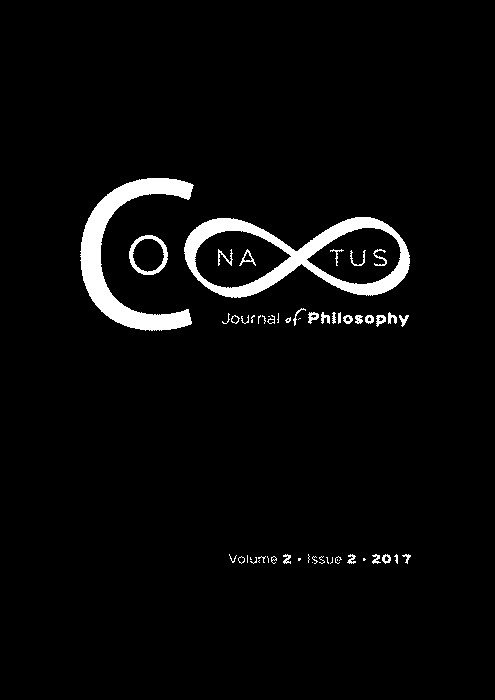Η Κριτική Άποψη του Schelling στην Έννοια του Κακού του Leibniz
Abstract
Η αποσαφήνιση της έννοιας του κακού συνιστά ένα διαχρονικό ζήτημα της φιλοσοφικής διερεύνησης. Δύο κομβικούς σταθμούς σε αυτή την πορεία αποτελούν το έργο της Θεοδικίας του Leibniz και το έργο για την ανθρώπινη ελευθερία του Schelling. Με σκοπό την αποκατάσταση της θεϊκής τελειότητας, έναντι μίας ενδεχομενικής κρίσης στην ηθική βάση της εποχής, ο Leibniz εισάγει το ελλειπτικό κακό, η αρχή του οποίου εμπεριέχεται στην ανθρώπινη νόηση. Ο Θεός εκλαμβάνεται ως δημιουργός του Καλύτερου Δυνατού Κόσμου, όπου το καλό μεγιστοποιείται στο πλέγμα των νόμων της απλότητας και της πληρότητας. εξάλλου, δεν συγχρωτίζεται με το κακό, παρά μόνο όσον αφορά τη γένεσή του. Το κακό μετατοπίζεται στην ανθρώπινη φύση, κυρίως λόγω της αδυναμίας της να στρέφεται προς τη θεϊκή.
Το έργο του Schelling θα ασκήσει κριτική στις θέσεις της Θεοδικίας, αναδεικνύοντας την αντιφατική συσχέτιση της αισθητής παρουσίας του κακού με τη στέρηση της πραγματικότητάς του. Ο Schelling αντιπαρατάσσει την έντονη θετικότητα, όπως και πνευματικότητα, του κακού στη δραστικότητά του εντός του συμπαντικού γίγνεσθαι. Εκ παραλλήλου, αμφισβητεί τη θεϊκή επιλογή του μοναδικού καλύτερου κόσμου, εν μέσω της ακολουθίας των απείρων κενών δυνατοτήτων. Στον Θεό της αδιάλειπτης αυτοπραγμάτωσης συναρτάται το ανθρώπινο ον του βουλητικού δυναμικού και της ιδιαίτερης αλληλεπίδρασής του με τη φύση. Επί τη βάσει της ορισμένης συνάρτησης, καταδεικνύεται η οντολογική ομοιογένεια του κακού με το καλό, ενόσω η μεταξύ τους διαφοροποίηση επαφίεται στη δυνατότητα του ανθρώπου να ανατρέπει τις δυναμοκρατικές ισορροπίες και να αποδιαρθρώνει την ολότητα. Πρόκειται για δυνατότητα αποκλειστική της ανθρώπινης φύσης, κυρίως εντοπιζόμενη στην τάση της εαυτότητάς της προς επικράτηση.
Στο παρόν άρθρο επιχειρείται η παρουσίαση των αποκλίσεων, αλλά και των πιθανών προσεγγίσεων, αμφότερων φιλοσοφικών θέσεων συναρτήσει της έννοιας του κακού. Το εγχείρημα πραγματοποιείται υπό το πρίσμα ενός υποθετικού διαλόγου, ο οποίος κατ' ουσίαν βασίζεται στην κριτική που ασκεί ο Schelling στα θεμελιώδη επιχειρήματα της Θεοδικίας του Leibniz.Article Details
- Come citare
-
Petrou, V. (2018). Η Κριτική Άποψη του Schelling στην Έννοια του Κακού του Leibniz. Conatus - Journal of Philosophy, 2(2), 91–102. https://doi.org/10.12681/conatus.15964
- Sezione
- Articles

Questo lavoro è fornito con la licenza Creative Commons Attribuzione - Non commerciale 4.0 Internazionale.
Authors who publish with this journal agree to the following terms:
Authors retain copyright and grant the journal right of first publication with the work simultaneously licensed under a Creative Commons Attribution Non-Commercial International License (CC BY-NC 4.0) that allows others to share the work with an acknowledgement of the work's authorship and initial publication in this journal.
Authors are able to enter into separate, additional contractual arrangements for the non-exclusive distribution of the journal's published version of the work (e.g. post it to an institutional repository or publish it in a book), with an acknowledgement of its initial publication in this journal.
Authors are permitted and encouraged to post their work online (preferably in institutional repositories or on their website) prior to and during the submission process, as it can lead to productive exchanges, as well as earlier and greater citation of published work.






